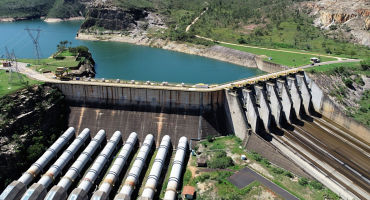You are about to enter a website for professional and sophisticated investors and licensed intermediaries (e.g. financial advisers), also known as wholesale investors in New Zealand and wholesale clients in Australia, only and the information contained herein is not suitable for retail investors. Any person unable to accept these terms and conditions should not proceed any further.
The use of wellington.com (this “Website”) is subject to the following terms and conditions (the “Terms”). After you have read and understood these Terms, you may click “Accept” to confirm that you agree to be bound by the Terms.
By clicking “Accept” you:
(i) expressly acknowledge that you have read and understood the Terms and agree to abide by them;
(ii) represent and warrant that the jurisdiction you have selected is the applicable jurisdiction for the intended investment activities, and that you are not resident in the United States of America and are not a U.S. Person (to be redirected to our US website, please click here);
(iii) confirm that you are accessing this Website in compliance with the laws and regulations of the jurisdiction you have selected, and all other applicable laws, rules and regulations;
(iv) represent and warrant, if applicable, that you are authorised to accept these Terms and use or access (or attempt to use or access) this Website on behalf of your employer, your client, or both, and that in doing so you are acting within the scope of your duties and, at all times, on behalf of your employer, your client or both;
(v) hereby declare, represent and warrant that you are a "wholesale client" (as defined in section 761G of the Australian Corporations Act 2001 (Cth) (as may be amended, modified or supplemented from time to time) ("Corporations Act") and/or a “wholesale investor” (as defined in clause 4 of Schedule 5 to the NZ Financial Markets Conduct Act 2013 (“FMCA”)); and
(vi) acknowledge and agree that you have fully read and understood our privacy policy which forms part of these Terms and is referred to below in paragraph 17.
If you do not agree with these Terms you must refrain from using this Website.
In these Terms, references to “you” and “your” are references to any person using or accessing (or attempting to use or access) this Website or, as the context requires, the legal entity on whose behalf a user uses or accesses (or attempts to use or access) this Website. References to “WM Australia”, “we” and “us” are references to Wellington Management Australia Pty Ltd
By entering this Website, you acknowledge and agree to be bound by each of the following Terms, together with any additional terms and conditions that apply to individual webpages, documents or other attachments contained within this Website (together, the "Conditions of Use"). If there are any Conditions of Use that you do not understand or agree with, you must leave this Website or the webpage in question (as applicable) immediately and delete immediately from the memory of your computer all documents from this Website.
- About this Website: The information on this Website is issued and owned by, and this Website is operated by, Wellington Management Australia Pty Ltd ("WM Australia"), which is regulated by the Australian Securities and Investments Commission ("ASIC") as an Australian financial services ("AFS") licence holder (AFS licence number 462912)
Access to this Website: In order to access this Website, you have been asked to select the jurisdiction which is applicable for the intended investment activities. Your selection will be used to determine the information that you will be able to access on this Website. You hereby represent and warrant to WM Australia that the information that you have provided is true, accurate and complete and you undertake to notify us of any change to such information. Failure to provide us with accurate information will be treated as a material breach of these Terms. You must not attempt to gain access to areas of this Website other than those made available to users in the jurisdiction you selected. If the jurisdiction you should select changes, you must access this Website selecting your new jurisdiction. You should be aware that this may result in you not being able to access any information at all.
When using this Website you must comply with all applicable local, national and international laws and regulations including those related to data privacy, international communications and exportation of technical or personal data. It may be unlawful to access or download the information contained on this Website in certain countries and WM Australia and its affiliates disclaim all responsibility if you access or download any information from this Website in breach of any law or regulation of Australia, the jurisdiction in which you are residing or domiciled or the jurisdiction from which you access the Website.
If you are acting as a licensed intermediary, you agree to access this Website only for the purposes for which you are permitted to do so under applicable law. You agree that you will not share with, or provide any information available on this Website to, persons in Australia or New Zealand other than in accordance with and pursuant to the applicable requirements and restrictions under the Corporations Act and/or the FMCA, as applicable.
WM Australia reserves the right to suspend or withdraw access to any page(s) included on this Website without notice at any time and to the maximum extent permitted by law accepts no liability if, for any reason, these pages are unavailable at any time or for any period.
This Website is available as a secure website and on devices running compatible internet browsers. We may change operating platforms and/or system requirements to use the Website from time to time. You may need to download or perform updates if you would like to continue your use of the Website. We do not accept any responsibility if your use of the Website is affected due to changed requirements and platforms.
You acknowledge that you have no rights in, or to, the Website or the technology used to support the Website, other than the right to use the Website in accordance with these Term
- Selling Restrictions: The distribution of the information and documentation on this Website may be restricted by law in certain countries. This Website, and the information and documentation on it, are not addressed to any person resident in the territory of any jurisdiction where such distribution would be contrary to local law or regulation. If any fund interests issued by WM Australia are to be on sold to investors in Australia without a product disclosure statement or other disclosure document, within 12 months of their issue, they may only be on sold to persons in Australia who are "wholesale clients" under section 761G of the Corporations Act. You warrant that you are, and at all times will be, a "wholesale client".
- No Investment Advice: The information on this Website is provided for information only and is provided on the basis that you will make your own investment decisions.
Nothing contained on this Website constitutes, and nothing on this Website should be construed as, financial product advice or a recommendation or opinion to buy, sell, hold or otherwise transact in any financial product. It is strongly recommended that you seek professional investment advice before making any investment decision.
The information on this Website does not take account of any investor's investment objectives, particular needs or financial situation. The investor should, before acting on any information, consider the appropriateness of the information, having regard to their own objectives, financial situation and needs. In addition, nothing on this Website shall, or is intended to, constitute financial, legal, accounting or tax advice.
You should consider whether an investment fits your investment objectives, particular needs and financial situation before making any investment decision. You should also inform yourself as to (a) the possible tax consequences, (b) the legal requirements and (c) any foreign exchange restrictions or exchange control requirements which you might encounter under the laws of the countries of your citizenship, residence or domicile and which might be relevant.
Any opinion, comment, article, financial analysis, market forecast, market commentary or other such information which is published on the Website is not binding on WM Australia or its affiliates nor are they deemed responsible for the information, opinion or ideas offered.
- Information on this Website: This Website, and the information on it, are provided for information purposes only and do not constitute an invitation, offer or solicitation to engage in any investment activity including to buy, hold or sell any investment.
To the maximum extent permitted by law, the following disclaimer will apply, subject to any applicable contrary provisions you are entitled to under Australian Consumer Law and statute, or the New Zealand Consumer Guarantees Act 1993 and Fair Trading Act 1986, as applicable.
The information on this Website is provided in good faith and reasonable care has been taken to ensure that such information is accurate, current and fit for its intended purpose. To the extent that any information on this Website relates to a third party, this information has been provided by that third party and is the sole responsibility of such third party and, as such, WM Australia and its affiliates accept no liability for such information. No representation or warranty of any kind regarding the accuracy, adequacy, validity, completeness or timeliness of the information on this Website or the error-free use of this Website is given and, to the extent permitted by applicable laws, no liability is accepted for the accuracy or completeness of such information. No warranty of any kind, express or implied, including but not limited to the warranties of non-infringement of third-party rights, title, merchantability, fitness for a particular purpose, and freedom from computer virus is given in conjunction with the information, materials, products, and services on the Website. Any views expressed herein are those of the author(s), are based on available information, and are subject to change without notice. Individual portfolio management teams may hold different views and may make different investment decisions for different clients. WM Australia does not warrant that the Website will meet your needs. You agree to assume the entire risk as to your use of the Website. Any person who acts upon, or changes his investment position in reliance on information contained on this Website, does so entirely at his own risk. In the event of any inconsistency between the information on this Website and the terms of the relevant offering documents, the terms of the offering documents shall prevail.
Information posted on this Website is current only as at the date it is first posted and may no longer be true or complete when viewed by you. All content on the Website is subject to modification from time to time without notice. Please contact WM Australia (using the details in the “Contact Us” section below) for further information regarding the validity of any information contained on this Website.
This Website and most of the documentation contained within it is provided in the English language and you represent and warrant that you understand the English language.
- Conflicts of Interest: WM Australia, its affiliates and their directors, officers, employees or clients may have or have had interests or long or short positions in any investment product or other financial instruments underlying any investment product referred to on this Website and may at any time make purchases and/or sales in them as principal or agent. In addition, WM Australia and/or its affiliates may act or have acted as market maker in any investment product, or financial instruments underlying such investment product or entered into an arrangement to hedge the market risk associated with the investment products. WM Australia has conflicts of interest policies in place which specify the procedures that they follow and the measures that they have adopted in order to avoid such conflicts or to manage such conflicts in a way that ensures fair treatment for clients.
- Liability: To the extent permitted by law, no warranty (other than the Consumer Guarantees) is given that the contents of this Website are compatible with all computer systems or browsers or that this Website shall be available on an uninterrupted basis.
Although we endeavour to secure the Website, the internet is not a completely reliable transmission medium and none of WM Australia or any of its affiliates accept any liability for any data transmission errors such as data loss or damage or alteration of any kind or for the security or confidentiality of information transmitted across the internet to or from WM Australia or any of its affiliates or any interference, loss , damage or disruption to your computer or mobile device which arises in connection with your use of the Website. Any such transmission of information and access to the Website is entirely at your own risk and any material downloaded from this Website is downloaded at your own risk.
The information on this Website is provided “as is” and “as available”. To the extent permitted by law, no guarantee or representation, express or implied, is made as to the accuracy, validity, timeliness, completeness or continued availability of any information made available on the Website. WM Australia, its affiliates and each of their directors, officers, employees and/or agents expressly exclude all conditions, warranties, representations, and other terms which might otherwise be implied by statute, common law or the law of equity to the fullest extent permitted by applicable law or regulation.
You acknowledge that it is your responsibility to:
a) implement sufficient procedures and virus checks (including anti-virus and other security checks) to satisfy your particular requirements for the accuracy of data input and output; and
b) ensure that whatever you select for your use in the Website is free of viruses or anything else that may interfere with or damage the operations of your computer or mobile device.
In no event will WM Australia or any of its affiliates be liable to any person for any direct, indirect, special or consequential damages, losses or liabilities arising out of any use of, or inability to use, this Website or the information contained on it including, without limitation, lost profits, business interruption, any failure of performance, error, omission, interruption, defect, delay in operation or transmission, computer virus, line or system failure, loss of programs or data on your equipment or otherwise, even if WM Australia or its affiliates are expressly advised of the possibility or likelihood of such damages, losses or liabilities, unless such damages, losses or liabilities are due to WM Australia’s or its affiliates’ negligence, wilful default, fraud or material breach of WM Australia’s or its affiliates’ obligations under applicable law or regulation.
This does not affect the liability of WM Australia or its affiliates for any loss or damage which cannot be excluded or limited under applicable law (including Australian Consumer Law or New Zealand consumer law).
- Indemnification: As a condition of your use of the Website, you agree to indemnify and hold WM Australia, its affiliates, and their respective partners, directors, employees, and agents harmless from and against any and all claims, losses, liability, costs, and expenses (including but not limited to legal fees) arising from your use of the Website or from your violation of these Terms, unless such claims, losses, liability, costs or expenses are due to WM Australia’s or its affiliates’ negligence, wilful default, fraud or material breach of WM Australia’s or its affiliates’ obligations under applicable law or regulation.
- Intellectual Property: All rights are reserved in the entire content of this Website. Copyright and all other intellectual property rights in the materials on this Website are owned or licensed by WM Australia, its affiliates and/or its third-party providers and are protected by Australian and international intellectual property laws. Unless otherwise indicated, all trademarks, and logos appearing on this Website are the exclusive property of WM Australia. Unless required by law, you may not copy, display, distribute, communicate, download, license, modify, adapt, publish, repost, reproduce, sell, transmit, use to create a derivative work, or otherwise use for public or commercial purposes the content of this Website without the express prior written permission of WM Australia.
- Privacy Policy: Please see our privacy policy which is contained on this Website for information about how the Wellington Management group handles and protects your personal information, including personal information collected through this Website, as well as how you can request to access or correct your personal information and make a privacy complaint. By agreeing to these Terms, you acknowledge and agree that you have fully read and understood our Privacy Policy, which forms part of these Terms.
- Cookies : When you visit this Website, a Wellington Management group company server will record your IP address together with the date, time, page visited and duration of your visit. Please note that the Wellington Management group uses cookies on this section of the Website. A cookie is a small piece of information sent by a web server to store on a Web browser so it can later be read back from that browser. Cookies are small pieces of software that are issued to your computer or device and that store and sometimes track information about your use of the site. The Wellington Management group also uses cookies to collect general usage and volume statistical information that does not include personally identifiable information. Some cookies may remain on the user’s computer after they leave this Website (these are known as persistent cookies). For more information about cookies including how to set your internet browser to reject cookies, please go to www.allaboutcookies.org.
By using this Website, you agree that the Wellington Management group can place cookies on your device which collect the data and for the purposes described above and as further detailed in the cookie & tracking notice.
If you delete cookies relating to this Website, we will not remember things about you, you will be treated as a first-time visitor the next time you visit this Website and we will not be able to tailor your experience of this Website.
The Wellington Management group has engaged one or more third party service providers to track and analyze usage and volume statistical information from visitors to this Website. The service provider(s) set cookies on behalf of the Wellington Management group. The Wellington Management group may re-associate the information provided by the technologies directly above with other personal information we hold about you. By using this Website, you agree that third parties can place cookies on your device as described above.
- Your use of this Website: You must not use this Website (or permit or procure others to use it):
- for any unlawful, improper or illegal purpose or activity;
- to communicate or receive information that is obscene, indecent, pornographic, sadistic, cruel, or racist in content, of a sexually explicit or graphic nature, which promotes or incites discrimination, hatred or racism or which might be legally actionable for any reason;
- in a manner intended to threaten, harass, or intimidate;
- to violate WM Australia’s or any third party's copyright, trademark, proprietary or other intellectual property rights;
- to damage WM Australia’s name or reputation or that of WM Australia’s affiliated companies or any third parties;
- to impersonate any of WM Australia’s employees or other person or use a false name while using this Website or implying an association with WM Australia;
- to penetrate WM Australia’s security measures or other entities' systems ("hacking");
- to transmit unsolicited voluminous emails (for example, spamming) or to intercept, interfere with or redirect email intended for others using this Website;
- to generate excessive amounts of internet traffic, to interfere with WM Australia’s network or other’s use of this Website or to engage in activities designed to, or having the effect of, degrading or denying service to other users of this Website or others;
- to introduce viruses, worms, harmful code and/or Trojan horses onto the internet or into this Website or any other entity’s systems and it is your responsibility to ensure that whatever you download or select for your use from this Website is free from such items;
- to post or transmit information that is defamatory, fraudulent or deceptive including, but not limited to, scams such as "make-money-fast" schemes or "pyramid/chain" letters; and/or
- to transmit confidential or proprietary information, except solely at your own risk.
- Linked Websites: Links to websites operated by third parties are provided for information only and do not constitute any form of advice, endorsement or recommendation of such websites or the material on them. WM Australia accepts no responsibility for information contained on any other sites which can be accessed by hypertext link from this Website or for these sites not being available at all times. WM Australia has not reviewed, and will not review or update, such websites or information and any use that you make of such websites and information is at your own risk. Please note that when you click on any external site hypertext link you will leave this Website. You should review the privacy statements of such websites before you provide any personal or confidential information.
- Website Security and Restrictions on Use: As a condition to your use of this Website, you agree that you will not, and you will not take any action intended to: (i) access data that is not intended for you; (ii) invade the privacy of, obtain the identity of, or obtain any personal information about any other user of this Website; (iii) probe, scan, or test the vulnerability of this Website or WM Australia’s network or breach security or authentication measures without proper authorisation; (iv) attempt to interfere with service to any user, host, or network or otherwise attempt to disrupt our business; or (v) send unsolicited mail, including promotions and/or advertising of products and services. Unauthorised use of the Website, including but not limited to unauthorised entry into WM Australia’s systems or misuse of any information posted to the Website, is strictly prohibited.
- Amendment: WM Australia may delete or make changes to these Terms and to the information contained on this Website at any time. Where such amendments are made, you will be required to accept any such changes in order, and prior, to continue to use the Website. If you do not accept such revised Terms, you may no longer be able to access this Website.
If any provision of these Terms is found by any court or authority of competent jurisdiction to be illegal, void or invalid under the laws of any jurisdiction, the legality, validity or enforceability of the remainder of these Terms in that jurisdiction shall not be affected and the legality, validity and enforceability of the whole of these Terms in any other jurisdiction shall not be affected.
Rights in these Terms can only be waived in writing signed by the waiving party. Failure or delay of a party in exercising a right under these Terms does not waive the party's rights. A waiver will only waive the particular rights in the particular circumstances and will not waive any other rights, or the same rights in other circumstances.
- Third Parties: WM Australia and its affiliates shall have the benefit of the rights conferred on them by these Terms but otherwise no person who is not a party to these Terms may enforce its terms.
- Consumer Guarantees: If you are in Australia or New Zealand or your usual residence is in Australia or New Zealand, the following additional terms shall apply. In the event of any conflict between the following additional terms and the provisions elsewhere in these Terms, the following terms shall prevail:
Limitation of Liability: Where you acquire goods or services of a kind ordinarily acquired for personal, domestic or household use or consumption, the operation of the Consumer Guarantees in relation to those goods and services, are not in these Terms, excluded, restricted or modified, and WM Australia does not exclude or limit the operation of the Consumer Guarantees under any provision of these Terms or in any other manner.
In this clause 16:
Australian Consumer Law has the meaning given to that term in section 4 of the Australian Competition and Consumer Act 2010 (Commonwealth of Australia).
Consumer Guarantees means, in Australia: the statutory guarantees conferred in relation to the supply of goods or services to a Consumer under the Australian Consumer Law and other similar legislation of Australian states and territories and in New Zealand: the statutory guarantees conferred in relation to the supply of goods or services to a consumer (as that term is defined in the Consumer Guarantees Act 1993) under the Consumer Guarantees Act 1993.
Consumer has the meaning given to that term in section 3 of the Australian Consumer Law.
- Applicable Law: These Terms and any non-contractual obligations arising from or connected with them shall be governed by, and these Terms shall be construed in accordance with, the laws of the State of New South Wales, Australia.
- Jurisdiction: You agree that the Australian courts shall have exclusive jurisdiction in relation to any legal action or proceedings arising out of or in connection with these Terms (whether arising out of or in connection with contractual or non-contractual obligations) (“Proceedings”) and waive any objection to Proceedings in such courts on the grounds of venue or on the grounds that Proceedings have been brought in an inappropriate forum. You further agree that this paragraph operates for the benefit of WM Australia and accordingly WM Australia shall be entitled to take Proceedings in any other court or courts having jurisdiction.
- About Wellington Management Australia Pty Ltd: Wellington Management Australia Pty Ltd is incorporated in Australia and is regulated as an AFS licence holder by ASIC. Wellington Management’s principal place of business is at Level 30, 180 George Street, Sydney NSW 2000, Australia.
- Contact Us: If you have any enquiries in relation to our data protection policies and procedures, this Website or the information on it, please click here to contact Wellington Management.
Effective as of 1 July 2022.












